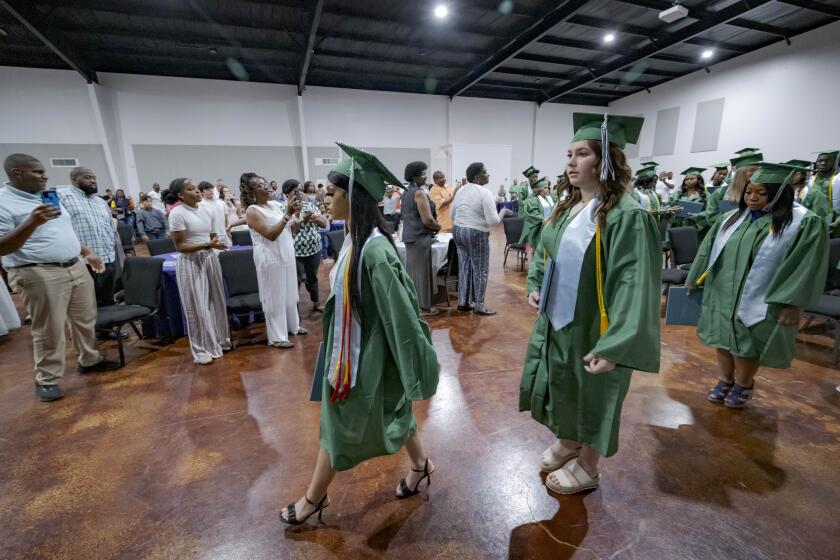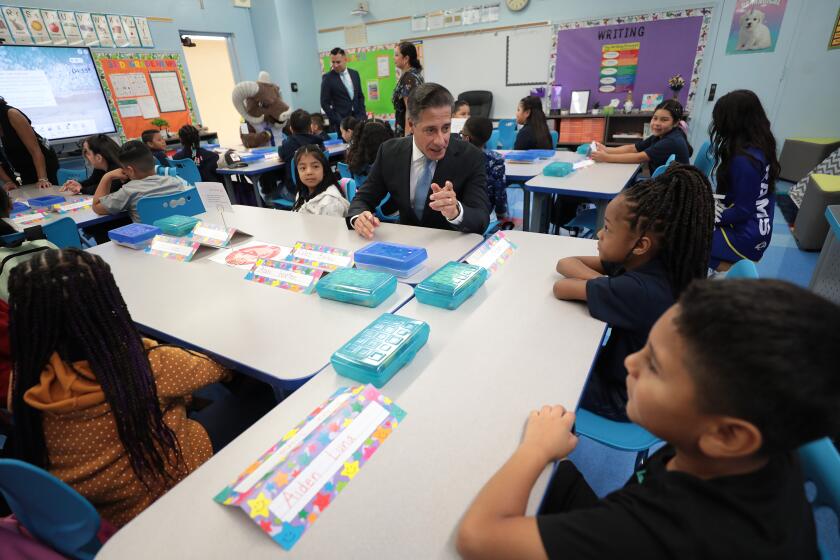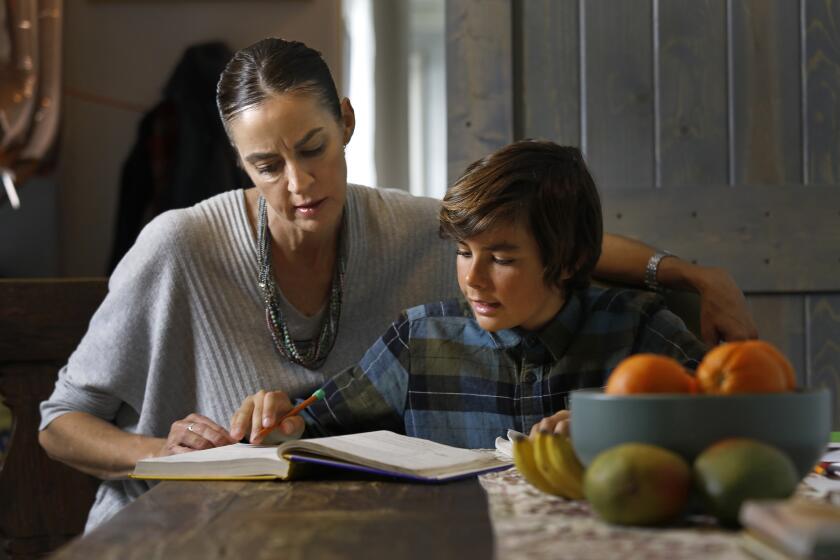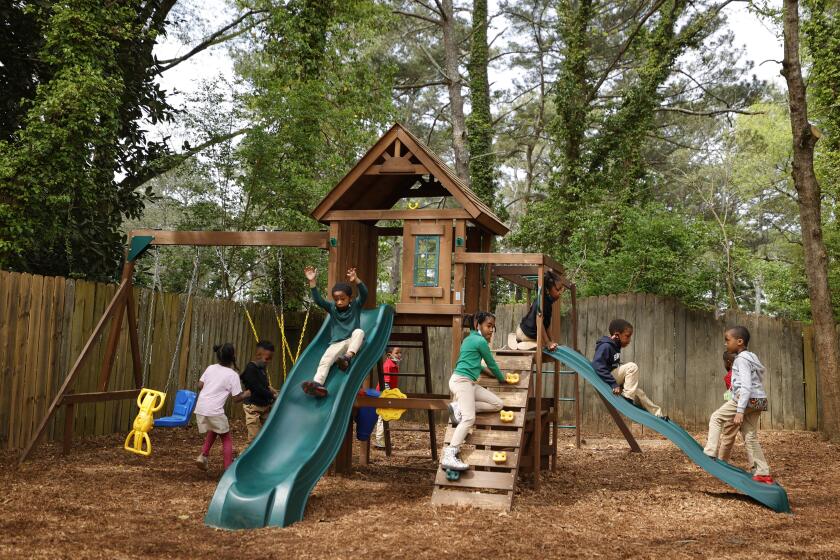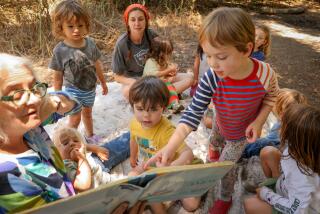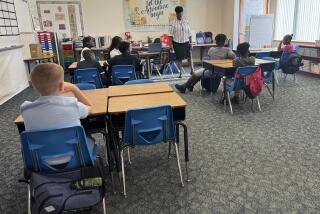A mom chose an off-the-grid school for safety from COVID. No one protected her child from the teacher
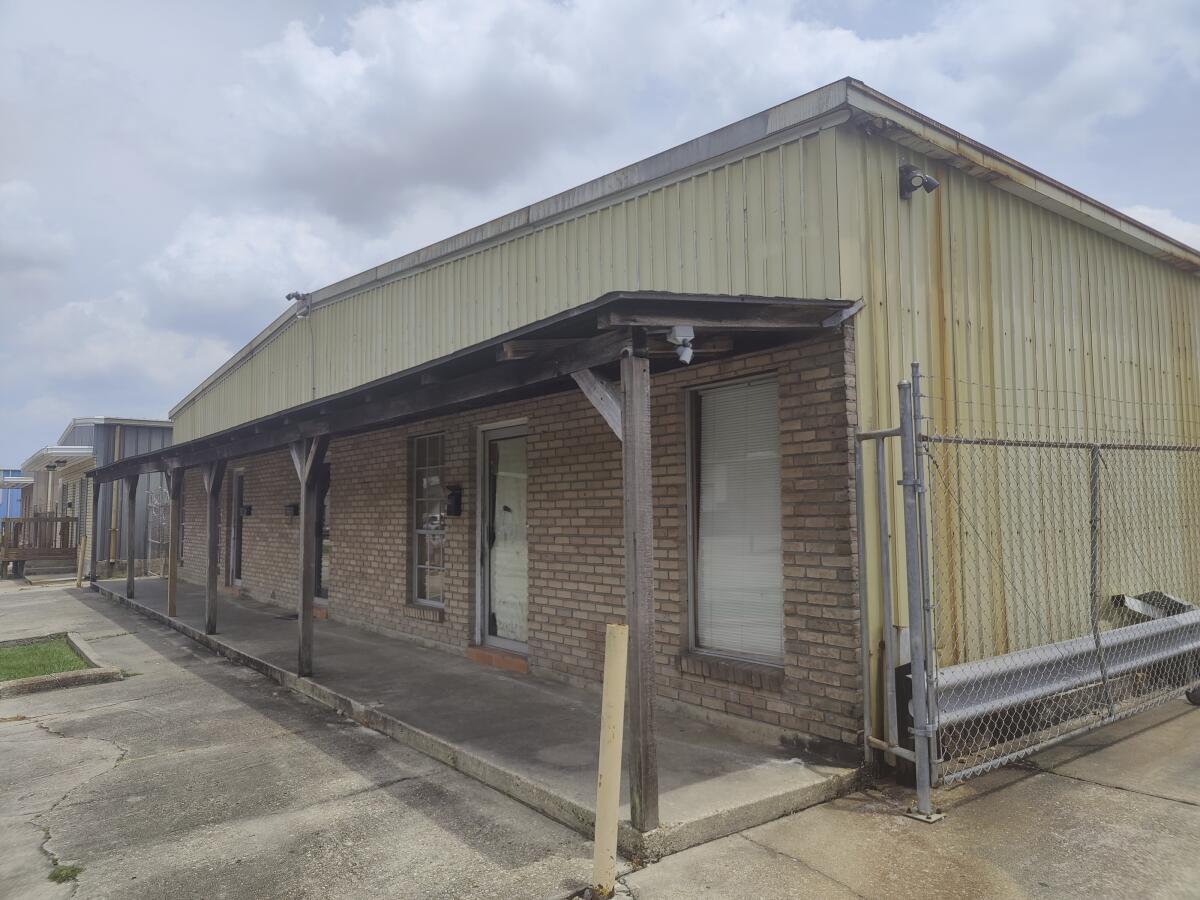
- Share via
BATON ROUGE, La. — When Raynesha Cummings enrolled her three teenagers in a private school, she hoped to keep them safe from COVID-19. It was small, with no frills — there was just one teacher and the school didn’t serve lunch — but it worked for her family, at least initially.
Her son graduated in May at the top of his class, with hopes of attending a trade school. But when he started applying, schools said they would not recognize his diploma.
Then, a couple of weeks later, Cummings says she discovered the teacher had been texting her 16-year-old daughter to offer money for sexually explicit photos. The teacher was arrested and Cummings learned he previously had been accused of raping a child.
Cummings didn’t know it when her kids started at Second Chance Academy, but the school had no accreditation, no approval from the state and no one supervising the teacher she left her kids with every day.
“If I had known that, I would never pay my money for them to go there,” Cummings said. “I really feel like I made a big mistake.”
Second Chance falls into a category of off-the-grid schools in Louisiana that operate with hardly any oversight. Formally known as “nonpublic schools not seeking state approval,” most are home schools that serve a single family. But some, like Second Chance, are brick-and-mortar schoolhouses with dozens of students.
Nearly 9,000 private schools in Louisiana don’t need state approval to grant degrees. But there’s no way to tell what kind of education they’re getting.
Today, the school on Renoir Avenue in Baton Rouge appears abandoned, shuttered perhaps for good after several brushes with the law. Its lone teacher is facing charges for sexual misconduct.
But the number of Louisiana children in unapproved schools — far outside the eye of any government official who might look out for abuse or check whether children are getting a real education — is skyrocketing. Enrollment in such schools jumped from around 11,600 students in the 2017-18 school year to over 21,000 this past school year, one example of the pandemic-era disengagement that has seen thousands of students nationwide leave the traditional education system.
Second Chance opened as a private school in the late 1980s, specializing in serving students expelled from public schools. Its founder, Brendia Ford, clashed repeatedly with public officials. Once, she defiantly held classes outdoors on the lawn for two weeks when the fire marshal shut off the school’s power, saying it was in dangerous condition after Hurricane Katrina.
In 1996, Ford’s son, Corey Nash, was arrested on charges that he sexually assaulted a 12-year-old student in the school’s locker room. He ultimately pleaded guilty to simple battery, a reduced charge that allowed him to continue working with children.
The state Board of Elementary and Secondary Education revoked the school’s approval to grant state-recognized diplomas in 2000. State inspectors could not find attendance or progress reports or verify enrollment, according to media reports at the time.
L.A. Unified shows incremental progress in math scores, although scores remain low. English scores drop overall.
Still, it remained open as an unapproved school. As long as the school didn’t take public funding, it could operate with freedom from regulations besides the state fire code.
The Louisiana Department of Education collects these schools’ names and enrollment numbers, but little else. It warns parents on its website that it cannot confirm whether these organizations even meet the legal definition of a school.
“We can’t say that these are real schools,” said Laura Hawkins, a former LDOE official.
Other examples of unapproved schools in Louisiana include Springfield Preparatory Academy, which an AP investigation found was selling diplomas, and T.M. Landry, where a 2018 New York Times investigation found transcripts were falsified to get students into Ivy League schools.
Many colleges won’t accept diplomas from unapproved schools because students must prove they attended a state-approved program to receive federal financial aid, said Billy Clark, president of Delta College in Baton Rouge.
Asked about the allegations against Second Chance, a Louisiana Department of Education spokesperson, Ted Beasley, said that by law the department does not have oversight of unapproved schools.
During the pandemic, a growing number of families have chosen to home school their children, with an especially large increase in the number of Black home schoolers.
Cummings was unaware of all this when she started looking into alternatives to East Baton Rouge public schools. It was the height of the pandemic, and Cummings thought her children would be safer at a smaller school.
Her partner attended Second Chance in the 1990s and recommended it. Cummings enrolled her twin daughters and older son in fall 2020, paying $375 a month.
Nash was the only teacher at the school, and often the only adult in the building, where Cummings would typically see around 25 teenagers. Cummings’ son got ahead of the material so quickly that she says he started teaching the class himself.
Still, Cummings saw advantages to the school.
“He was able to let the kids be who they are. Rather than, you know, suspending them for small, minor things that public schools will suspend for,” she said.
When several trade schools refused to recognize his diploma, Cummings complained to Nash. He said some colleges just have different rules.
A lawyer for Nash, Dele Adebamiji, said he could not comment while a court case is pending against his client. Attempts to reach Marlin Ford, listed in state records as the school’s leader, were unsuccessful.
Amid bans on teaching controversial topics related to race, Black families have embraced schools that affirm their African American heritage.
After Cummings posted on social media that her son was valedictorian, acquaintances started sharing rumors about abuse at Second Chance. She checked her daughter’s phone and says she discovered Nash had been offering money for nude photos and asking to let him touch her.
Infuriated, Cummings confronted Nash in an encounter filmed by her daughter and released on social media. In the video, he said his texts were just a “stupid joke” and he “never put my hands on her, never touched her.”
“No, but you tried. Don’t be stupid,” Cummings’ daughter replied.
Within days, Nash was arrested. Another, unnamed victim had come forward to police in May with allegations that Nash started sexually abusing her when she was 14, around 2009. Nash, who is out on bail, faces charges of sexual battery, molestation and indecent behavior with a juvenile.
Cummings has been homeschooling her daughters and looking for ways for her son to receive a legitimate diploma while he takes community college classes. Her daughter, depressed after reading victim-blaming comments on social media, rarely leaves the house.
Cummings said she hopes other parents will understand the risks of unapproved schools.
“I wanted everybody to know not to enroll your kids,” she said. “I took a chance on mine, but don’t take a chance on yours.”
More to Read
Sign up for Essential California
The most important California stories and recommendations in your inbox every morning.
You may occasionally receive promotional content from the Los Angeles Times.
